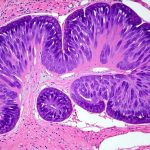The gut barrier, often referred to as the intestinal barrier, is far more than just a physical boundary separating the contents of your digestive tract from the rest of your body. It’s a dynamic ecosystem, a complex interplay between immune cells, intestinal epithelial cells, mucus layers, and the trillions of microorganisms that call your gut home – the gut microbiome. A healthy gut barrier selectively allows vital nutrients to be absorbed while preventing harmful substances like undigested food particles, toxins, and pathogens from entering the bloodstream. When this delicate balance is disrupted, leading to increased intestinal permeability (often called “leaky gut”), it can trigger a cascade of health issues ranging from inflammation and autoimmune reactions to mood disorders and chronic fatigue. Supporting gut barrier function isn’t just about addressing digestive symptoms; it’s about bolstering overall health and well-being.
Modern lifestyles—characterized by processed foods, chronic stress, antibiotic use, and environmental toxins—often put a significant strain on this vital system. Consequently, many individuals are looking for ways to proactively support their gut barrier integrity. While dietary changes form the cornerstone of any gut healing protocol, targeted supplementation can play an important role in providing additional building blocks and protective compounds needed to reinforce this crucial defense mechanism. This article will explore some key supplements that have shown promise in supporting a healthy gut barrier, focusing on mechanisms of action and considerations for responsible use. It is essential to remember that individual needs vary and consulting with a healthcare professional is always recommended before starting any new supplement regimen.
The Foundation: Building Blocks & Repair Agents
A compromised gut barrier often lacks the necessary components to rebuild and maintain its integrity. Supplements focusing on providing these building blocks can be extremely beneficial in initiating the repair process. Collagen, for example, isn’t just a beauty supplement; it’s a key structural protein found throughout the body, including the intestinal lining. Supplementing with hydrolyzed collagen (meaning broken down into smaller peptides for easier absorption) provides amino acids essential for tissue regeneration. Similarly, L-Glutamine, an amino acid, is a primary fuel source for enterocytes – the cells that line the small intestine – and plays a critical role in their repair and function.
Beyond structural components, certain fats are also crucial. Short-chain fatty acids (SCFAs), produced by beneficial gut bacteria when they ferment dietary fiber, provide energy to colonocytes (cells of the colon) and contribute to barrier integrity. While we aim to cultivate SCFA production through a high-fiber diet, supplementation with butyrate, one specific SCFA, can be considered in some cases. It’s important to note that butyrate has a distinct odor and taste which may make direct supplementation challenging for some individuals; enteric coated capsules or alternative delivery methods are often preferred. Finally, zinc is an essential mineral vital for intestinal cell growth and repair, as well as immune function within the gut. Deficiency in zinc can significantly impair barrier function.
Addressing inflammation is also paramount to supporting gut health. Chronic inflammation damages the gut lining and hinders its ability to heal. Supplements with potent anti-inflammatory properties – like curcumin from turmeric or omega-3 fatty acids (EPA & DHA) found in fish oil – can help dampen this inflammatory response, creating a more favorable environment for repair. It’s crucial to choose high-quality supplements that are well absorbed and bioavailable. You may also find value in managing stress as it relates to gut health.
Probiotics & Prebiotics: Cultivating a Healthy Microbiome
The gut microbiome isn’t just a passive bystander; it actively participates in maintaining the integrity of the gut barrier. Probiotics – live microorganisms that, when administered in adequate amounts, confer a health benefit on the host – help strengthen the barrier through several mechanisms. They compete with harmful bacteria for resources and adhesion sites, produce antimicrobial substances, modulate immune responses, and even enhance mucus production. However, probiotic supplementation isn’t one-size-fits-all. Different strains have different effects, so choosing a probiotic tailored to your specific needs is essential. Lactobacillus and Bifidobacterium are two well-studied genera with numerous beneficial strains.
- Consider factors like strain specificity (e.g., Lactobacillus rhamnosus GG), colony forming units (CFUs – the number of live bacteria per dose), and survival through the digestive tract when selecting a probiotic.
- Look for probiotics that have been clinically studied and demonstrated efficacy in relevant areas, such as intestinal permeability or immune function.
Prebiotics, on the other hand, are non-digestible fibers that serve as food for beneficial gut bacteria, promoting their growth and activity. This, in turn, leads to increased SCFA production – further bolstering gut barrier function. Common prebiotics include inulin, fructooligosaccharides (FOS), galactooligosaccharides (GOS), and resistant starch. Combining probiotics with prebiotics is known as synbiotic supplementation, offering a synergistic approach to gut health. A diverse diet rich in fiber-rich foods – fruits, vegetables, whole grains, legumes – provides natural prebiotic sources, but supplements can be useful for targeted support. Supporting your microbiome may also involve small choices that promote gut peace and overall health.
Addressing Specific Deficiencies & Leaky Gut Support
Beyond the foundational building blocks and microbiome modulation, certain supplements address specific deficiencies or provide direct support for a leaky gut. Vitamin D plays a crucial role in immune regulation within the gut and deficiency is common, especially during winter months. Adequate Vitamin D levels are essential for maintaining barrier integrity and reducing inflammation. Testing your vitamin D levels can help determine if supplementation is necessary.
- Another important consideration is addressing potential histamine intolerance. A leaky gut can lead to increased histamine absorption, triggering allergic-type symptoms. DAO enzyme supplements (diamine oxidase) can help break down histamine in the digestive tract, potentially alleviating these symptoms. However, DAO supplementation should be used cautiously and under professional guidance.
Finally, certain herbal remedies have demonstrated promise in supporting gut barrier function. Slippery elm bark contains mucilage, a soothing substance that coats and protects the intestinal lining. Marshmallow root has similar properties. Aloe vera may also help soothe inflammation and promote healing. However, it’s important to choose high-quality aloe vera products free from aloin (a potent laxative) and use them cautiously, as they can have a strong diuretic effect. These herbal remedies are often best used as part of a holistic approach under the guidance of a qualified healthcare practitioner. Enzyme function is also an important consideration when looking at overall gut health. You can also explore safe supplements to support a healthy body. Additionally, it’s helpful to learn how to set boundaries for improved gut health.
It’s imperative to remember that supplements are adjuncts to healthy lifestyle practices – not replacements for them. A balanced diet rich in whole foods, stress management techniques, adequate sleep, and regular exercise remain the cornerstones of gut health. Supplements can provide targeted support where needed, but they should be used strategically and responsibly, always under the guidance of a healthcare professional who can assess your individual needs and monitor your progress. Support networks are also invaluable resources for those navigating gut health challenges.


















